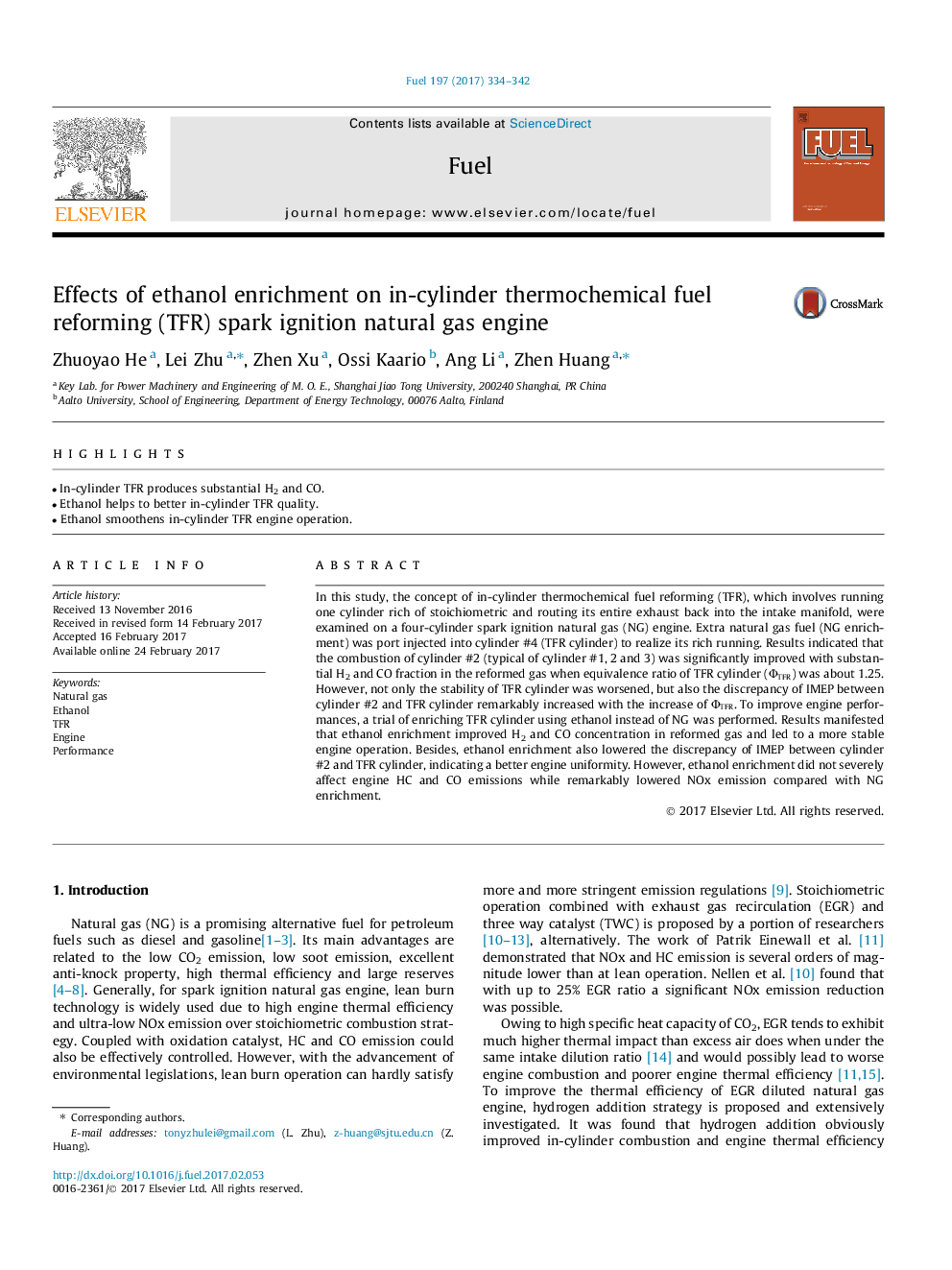| کد مقاله | کد نشریه | سال انتشار | مقاله انگلیسی | نسخه تمام متن |
|---|---|---|---|---|
| 6475233 | 1424967 | 2017 | 9 صفحه PDF | دانلود رایگان |

- In-cylinder TFR produces substantial H2 and CO.
- Ethanol helps to better in-cylinder TFR quality.
- Ethanol smoothens in-cylinder TFR engine operation.
In this study, the concept of in-cylinder thermochemical fuel reforming (TFR), which involves running one cylinder rich of stoichiometric and routing its entire exhaust back into the intake manifold, were examined on a four-cylinder spark ignition natural gas (NG) engine. Extra natural gas fuel (NG enrichment) was port injected into cylinder #4 (TFR cylinder) to realize its rich running. Results indicated that the combustion of cylinder #2 (typical of cylinder #1, 2 and 3) was significantly improved with substantial H2 and CO fraction in the reformed gas when equivalence ratio of TFR cylinder (ΦTFR) was about 1.25. However, not only the stability of TFR cylinder was worsened, but also the discrepancy of IMEP between cylinder #2 and TFR cylinder remarkably increased with the increase of ΦTFR. To improve engine performances, a trial of enriching TFR cylinder using ethanol instead of NG was performed. Results manifested that ethanol enrichment improved H2 and CO concentration in reformed gas and led to a more stable engine operation. Besides, ethanol enrichment also lowered the discrepancy of IMEP between cylinder #2 and TFR cylinder, indicating a better engine uniformity. However, ethanol enrichment did not severely affect engine HC and CO emissions while remarkably lowered NOx emission compared with NG enrichment.
Journal: Fuel - Volume 197, 1 June 2017, Pages 334-342